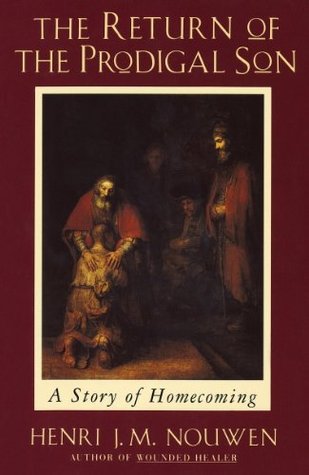More on this book
Community
Kindle Notes & Highlights
Read between
January 12 - January 31, 2024
had I, myself, really ever dared to step into the center, kneel down, and let myself be held by a forgiving God?
But giving up the somewhat safe position of the critical observer seemed like a great leap into totally unknown territory. I so much wanted to keep some control over my spiritual journey, to remain able to predict at least a part of the outcome, that relinquishing the security of the observer for the vulnerability of the returning son seemed close to impossible.
a step toward the platform where the father embraces his kneeling son. It is the place of light, the place of truth, the place of love. It is the place where I so much want to be, but am so fearful of being. It is the place where I will receive all I desire, all that I ever hoped for, all that I will ever need, but it is also the place where I have to let go of all I most want to hold on to. It is the place that confronts me with the fact that truly accepting love, forgiveness, and healing is often much harder than giving it. It is the place beyond earning, deserving, and rewarding. It is the
...more
Each little step toward the center seemed like an impossible demand, a demand requiring me to let go one more time from wanting to be in control, to give up one more time the desire to predict life, to die one more time to the fear of not knowing where it all will lead, and to surrender one more time to a love that knows no limits. And still, I knew that I would never be able to live the great commandment to love without allowing myself to be loved without conditions or prerequisites. The journey from teaching about love to allowing myself to be loved proved much longer than I realized.
All of the Gospel is there. All of my life is there. All of the lives of my friends is there. The painting has become a mysterious window through which I can step into the Kingdom of God.
Jesus says, “Anyone who loves me will keep my word and my Father will love him, and we shall come to him and make our home in him.” These words have always impressed me deeply. I am God’s home!
In the context of a compassionate embrace, our brokenness may appear beautiful, but our brokenness has no other beauty but the beauty that comes from the compassion that surrounds it.
“After signing over his possessions to his son, the father still has the right to live off the proceeds … as long as he is alive. Here the younger son gets, and thus is assumed to have demanded, disposition to which, even more explicitly, he has no right until the death of his father. The implication of ‘Father, I cannot wait for you to die’ underlies both requests.”
More than disrespect, it is a betrayal of the treasured values of family and community. The “distant country” is the world in which everything considered holy at home is disregarded.
More than any other story in the Gospel, the parable of the prodigal son expresses the boundlessness of God’s compassionate love.
the story deals not with the human love of an earthly father … what is meant and represented here is the divine love and mercy in its power to transform death into life.”
Faith is the radical trust that home has always been there and always will be there.


